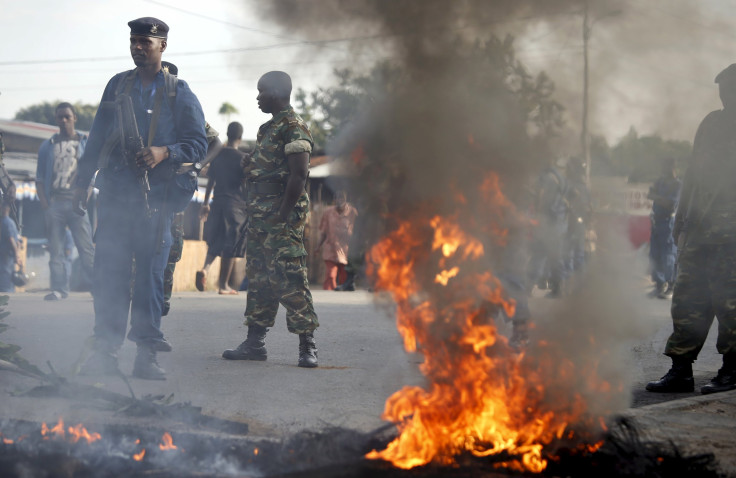United States Watching Burundi With 'Great Concern,' As US-Trained Soldiers Take Prominent Role

There’s been a possible coup in Burundi, and what happens next could reverberate throughout Africa. But there is another party likely watching very closely what goes on -- the White House.
While the State Department has already come out to express concern about a possibly violent situation, experts say America also has another important reason to keep an eye on Burundi, or more specifically, its soldiers.
“The country’s military has been one of the top recipients of U.S. training and equipment in Africa,” says Peter Pham, head of the Atlantic Council’s Africa Center.
Thousands of Burundi’s soldiers have received some kind of American training through various missions and exercises, in conjunction with other troops as part of groups such as the African Union, particularly its mission in Somalia (AMISOM.)
“This places the U.S. in a quandary,” Pham says. “We don’t like U.S.-trained soldiers staging coups, but we also don’t like presidents overstaying their mandates.”
Soon after military leader Gen. Godefroid Niyombare announced that he and the army had “dismissed” Burundi’s current president, Pierre Nkurunziza, the U.S. State Department issued a statement about the situation that did not take sides.
“We’re watching the situation in Burundi very closely and with great concern,” White House spokesman Jeff Rathke said in a Wednesday briefing, adding that the U.S. supports the East African Community in “calling for an end to the violence and for peaceful elections in line with the electoral laws and in the spirit of the Arusha Agreement.”
The Arusha Agreement of 2000 is a treaty that ended Burundi’s 12-year civil war, which left some 300,000 people dead. A major part of the peace deal involved the army, because its ethnic division was one of the challenges to democracy in the 1990s.
“It was clear that this army would never help sustain a democratic system,” said Timothy Longman, director of the African Studies Center at Boston University’s Pardee School of Global Studies.
Under the new rules, Burundi’s army has had equal numbers of members of Hutu and Tutsi ethnicity, and it seems to have quelled ethnic violence.
Burundi’s military has played a major role in many African Union missions, including the ongoing operation in Somalia to stamp out the militant group al-Shabab. In the process, it has received a great deal of U.S. training. Even coup leader Niyombare served in Somalia with Burundi’s army for a time.
Consequently, Americans will be keeping a close eye on what happens.
Though it is difficult to confirm reports from the ground after the coup, during earlier protests it was soldiers who broke up fights between pro-government youth militias and protesters.
While many have expressed fears that the army may divide itself along ethnic lines, that doesn’t appear to be happening. Though ethnic violence is a real part of Burundi’s history, experts say this situation is primarily political.
“This is not the way conflicts in Burundi have happened in the past,” Longman said.
© Copyright IBTimes 2024. All rights reserved.












